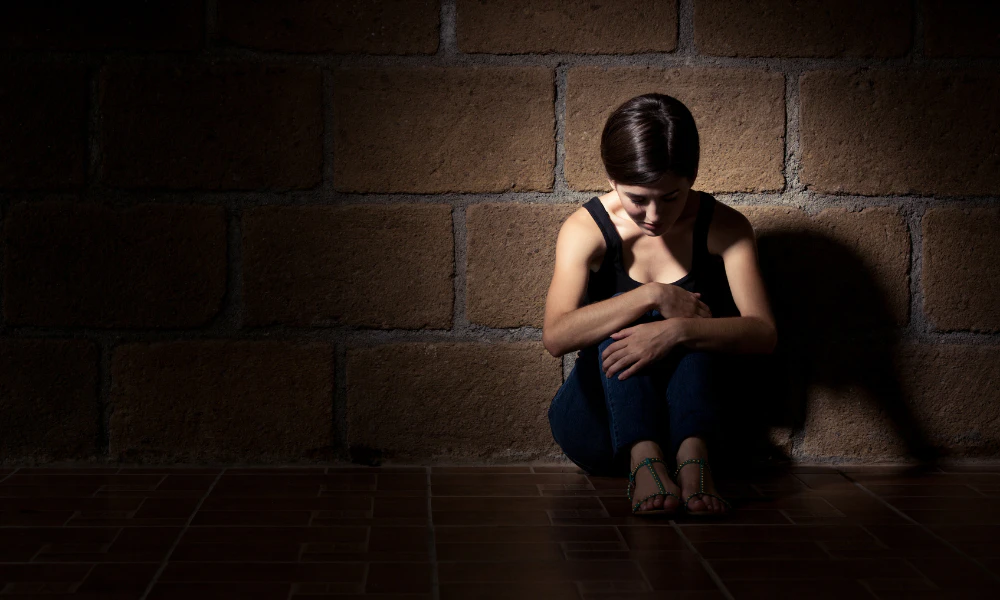
In my family, mental illness was not something we talked about. We glazed over our emotional slumps with hopeful phrases like “Everything will be OK,” or “That’s life,” and no one ever dared to utter words like “anxiety” or “depression.” But those feelings seeped out in insidious ways, like shouting or withdrawing.
One day when I was six, the phone rang and my parents immediately packed my sister and me into the car and drove to a relative’s house, where our extended family was gathered. The adults left us with some older cousins and headed to the psychiatric hospital. My uncle, who was in his late 20s, had been living there for some time, after the sudden death of my paternal grandmother and other events left him sullen, withdrawn and anxious.
That evening, the adults returned to the house and explained to us kids that our uncle had accidentally fallen from a window and died. I suspected they were lying, even then. I knew he had jumped.
Fast forward to more than a decade later, when I was in my freshman year at college and my father called to tell me that his sister had died of a heart attack. She was not yet out of her 30s.
After that second tragic event, I spent years explaining to physicians that my family history was riddled with early-onset heart disease. It’s true that both my paternal grandmother, whom I never met, as well as my own father, died at age 46—one from a stroke, the other from a massive heart attack. But the doctors were especially concerned when I recalled that my aunt—a young, physically fit woman who had no pre-existing conditions—succumbed to heart failure as well, just shy of her 40th birthday. So, they routinely hooked me up to EKG machines, drew my blood, and warned me to take it easy with the running.
A woman in my family died of a heart attack at age 39. That was the story that was told to me, and it was the story I told.
It wasn’t until last year, when my mother’s Alzheimer’s had advanced to the point where it turned her blood into a truth serum, that she blurted out that our aunt had not died of a heart attack, but had swallowed a bottle of unnamed pills. For various reasons, including serious domestic woes. Only under the influence of this dementia-induced candor could my mother finally admit that my aunt had been depressed.
Maybe it was a generational thing. Or a cultural thing. Either way, the secrecy and shame tied to mental illness were damaging to all of us. It was damaging to my cousins, siblings and I, who were never informed about our medical history. It was damaging to the adults who may have also had symptoms that they hid, instead of seeking treatment for. And it was damaging to everyone around us who would have benefited from understanding that mental illness is not only extremely common, but in most cases treatable, and that even mild depression or anxiety can be detrimental to one’s quality of life and health. Looking back, I suspect that several people on my mother’s side of the family experienced varying degrees of anxiety. I also remember that for a year or so during my adolescence, another hormone-shifting time, I had trouble sleeping, focusing, and connecting with my peers, but my parents never addressed these symptoms and I was too ashamed to tell them I was suffering.
It’s comforting to know that our attitudes about and understanding of mental health issues are evolving. One thing that’s coming to light is the fact that women in midlife are at a greater risk of depression than any other group, based on age and gender. In his book The Happiness Curve: Why Life Gets Better After 50, Jonathan Rauch points out that globally, there is a U-shaped curve in self-reported life satisfaction scores that shows most of us hit a low point at midlife. According to the Centers for Disease Control and Prevention (CDC), women between 40 and 59, in particular, have the highest rate of depression: 12.3 percent, or about one in eight.
One thing that’s coming to light is the fact that women in midlife are at a greater risk of depression than any other group.
Whether you’re suffering from clinical depression or merely find yourself in a slump, hitting a low in midlife is natural, says More Beautiful Podcast guest Dr. Ellen Albertson, a psychologist and author of Rock Your Midlife: 7 Steps to Transform Yourself and Make Your Next Chapter Your Best Chapter. During our conversation on the More Beautiful Podcast, Dr. Ellen explains that many factors can trigger mental health issues at this stage of life, including hormonal shifts, health crises, divorce, dealing with teenagers or a newly empty nest, caring for an elderly parent (or losing one). If those factors aren’t a recipe for depression, I’m not sure what is.
Aside from the midlife-specific factors, we’re all still dealing with COVID, and the holidays can exacerbate stress and anxiety. As I was writing my holiday cards last week, scrolling down my list of contacts I noticed at least four names of people who had died during the pandemic, and just like that, what used to be a fun annual exercise had turned into a depressing chore. Also, since we already spent so much time on the East Coast this year, my little nuclear family won’t be celebrating this Christmas with extended family, and that’s been making me sad. Thankfully, I can snap myself out of the blues by putting on some cheerful holiday music, or watching a sappy rom-com, or simply calling a good friend to chat. But if I weren’t able to do that, rest assured I would be calling someone like Dr. Ellen for a little support.
I’m sure you have your not-so-great moments. To help combat feelings of mild anxiety, you can try some of these methods. But if you are experiencing symptoms such as excessive sadness, loss of interest in things you once enjoyed, or low motivation, and these feelings have persisted for weeks, you may have depression and should consult with your doctor. There are plenty of treatments, including therapy, behavior modification, and medicine, so there’s no reason to deal with it alone.
Even if you’re as happy as you’ve ever been right now, I think you’ll find this episode with Dr. Ellen extremely enlightening. She views midlife as a spiritual wake-up call and an opportunity to embrace your most passionate, authentic self, which you know I absolutely love and agree with, and I hope our conversation inspires you to embrace all your possibilities as we approach the new year.



